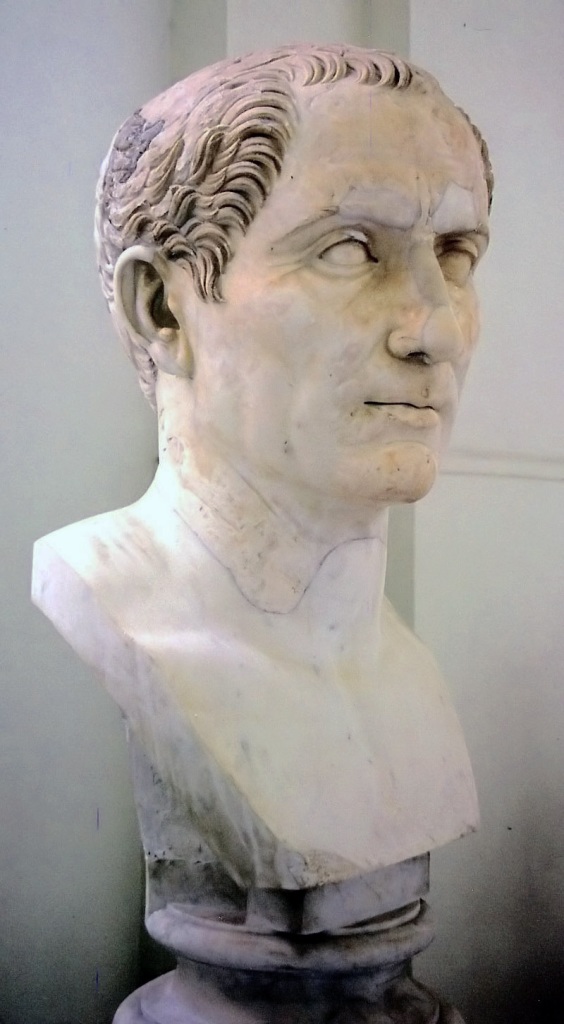Hail, Caesar?
Julius Caesar is remembered by history as a brilliant politician, republic-killing tyrant, ruthless dictator, and benevolent engineer for social change depending on whether you’re reading Shakespeare or Dante. Removing bias (as much as possible) from the equation, Julius Caesar was a Roman politician who took advantage of social changes and precedents which began at least a hundred years before he was born. By his own measure, and by the measure of his peers, he was very successful at gaining power and capitalizing on the injustices which the Roman Republic, for all its lofty propaganda, had repeatedly failed to address.
He was also once nearly sold into slavery.
Caesar the Debtor
Caesar was very adept at accomplishing political goals that made him popular with the largest faction in Rome, the Plebeians. However, getting things done in Rome meant spending money, and lots of it. Throwing lavish parties, giving incredibly opulent gifts, sponsoring Gladiatorial Games, and sometimes even outright bribery were some of Caesar’s major expenses. These weren’t for fun; they were pure business. Important people come to big parties, people are friendly toward those who give them generous gifts, the common people LOVED watching Gladiators fight and bribery is, well, bribery. Unfortunately for young Caesar, he began to get a little over-stretched financially.
Elected officials in Rome couldn’t be enslaved due to debt, but private citizens could, and Caesar was getting very nervous about his term as Senator was coming to an end. Enter Marcus Lucinius Crassus, the Bill Gates of Ancient Rome, who agreed to pay some of Caesar’s debt in exchange for political favors. Caesar agreed, but this gift only covered a portion of his mountain of debt. He was still in danger.
Caesar Makes Like Sir Robin
Caesar decided to take the radical (but also practical) step of getting the heck out of Rome, using the time honored tradition of running away from your problems. That’s not entirely true: he had been elected by the Senate to serve as Governor of a province in Hispania. But this would still qualify him, legally, as a private citizen (the law only protected certain elected officials) and so he would still be potentially subject to debt slavery. So a few days before his term as Senator was finished, he got on a boat and sailed for Spain.
The thing I always like to remember here is that Caesar had no idea, in the moment, where his life would eventually lead him. We see through the lens of history that he was much more successful down the line (excepting his “retirement party”), but in that moment, huddling onto a ship in the dead of night and praying that no one would recognize him and find some way to stop him, he was almost certainly worried. And scared.
Caesar’s Return
Of course, Caesar eventually did return to Rome, this time with plunder from the wars he fought in Spain and Gaul subduing the native tribes and annexing their territory for Rome. He had more than enough spoil to pay his debts and was now more popular with its people than ever before.
Why Am I Writing About This?
Sometimes, I feel like I’m not where I should be at this point in my life. I see what some of my friends are doing and accomplishing and it’s difficult not to be jealous and wonder when I’m ever going to “catch up” to them.
In times like those, I like to remember that even the most famous, successful people from history had times when they were down. They struggled, they experimented, they failed, and they picked themselves up and started over. I’m not where I want to be in my life yet. But that doesn’t mean I won’t get there some day, if I keep learning, working, writing, and making books that people love to read.


